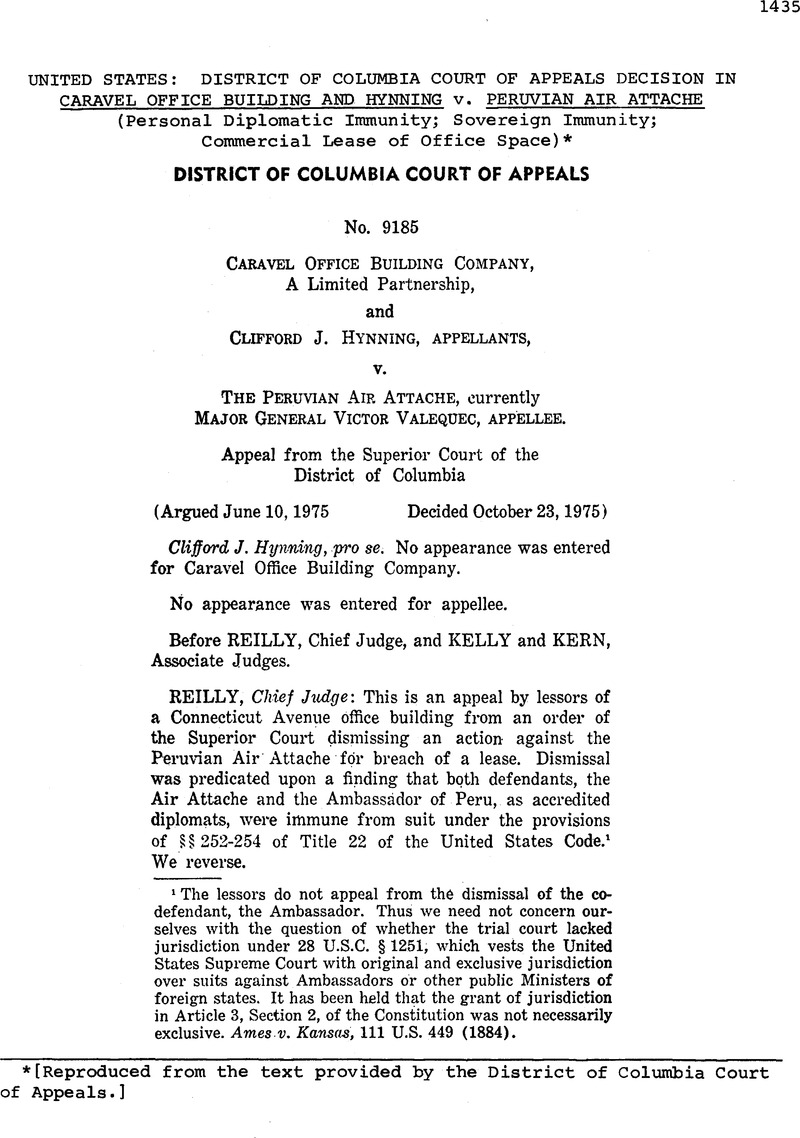No CrossRef data available.
Article contents
United States: District of Columbia Court of Appeals Decision in Caravel Office Building and Hynning v. Peruvian Air Attache (Personal Diplomatic Immunity; Sovereign Immunity; Commercial Lease of Office Space)*
Published online by Cambridge University Press: 04 April 2017
Abstract

- Type
- Judicial and Similar Proceedings
- Information
- Copyright
- Copyright © American Society of International Law 1975
Footnotes
[Reproduced from the text provided by the District of Columbia Court of Appeals.]
References
1 The lessors do not appeal from the dismissal of the codefendant, the Ambassador. Thus we need not concern ourselves with the question of whether the trial court lacked jurisdiction under 28 U.S.C. § 1251, which vests the United States Supreme Court with original and exclusive jurisdiction over suits against Ambassadors or other public Ministers of foreign states. It has been held that the grant of jurisdiction in Article 3, Section 2, of the Constitution was not necessarily exclusive. Ames v. Kansas, 111 U.S. 449 (1884).
2 The full text appears in the appendix to this opinion.
3 In Renchard, the State Department7#x0027;s procedures included a hearing and the submission of written briefs. This is consistent with what appears to be a current State Department policy on immunity determinations which favors the rudimentary elements of due process as opposed to a purely ex parte determination. See Monroe Leigh, Note, Sovereign Immunity—The Case of the ‘Imias’, 68 AM. J. INT'L L. 280, 281-82 (1974). The record in the instant case does not show that the Governmont of Peru or the named defendants made a formal request for immunity. In fact, they entered no appearance.


